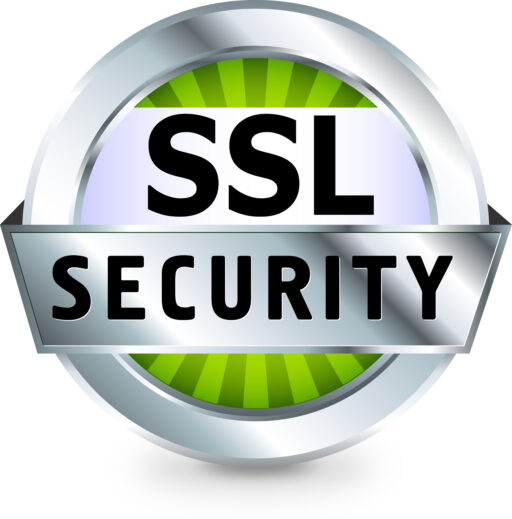
What I see on web hosting forums day in and day out are requests for high performance dedicated servers at great prices. The speed of the CPU, the number of its cores and so on is discussed as it relates to server performance, as well as how much RAM it has and whether it has SSD, NVMe or SATA drives. Why? Because server performance matters.
Why eCommerce sites are at risk of losing prospective clients!
Today’s consumer expectations have trended toward immediate gratification, from fast food drive thru’s to how fast a website loads for its visitors. The world is trending toward broadband where everything is so much faster than ever imagined, and along with it, a prospect’s tendency to move on if a site takes too long to load for them.
In fact, there has been research to show that eCommerce sites in particular lose nearly one fourth of their potential clients if a site takes more than four seconds to load. I don’t know how true that is, but I do know that speed matters, and not just to consumers. Google factors speed into their algorithms for ranking sites on their search engine. If it matters to Google, and you rely on online visitors to sustain your eCommerce operations, speed should matter to you as well.
Looking beyond server specifications
You would think that download times of eCommerce sites would have sped up over the past couple of years, simply because of advances in technology, but research has shown they’ve actually slowed down, and part of the reason for that extends beyond server specifications. I’ve assembled some common factors that play into poor download speeds. These are:
- Having broken links on a page. I’m constantly amazed how many sites I visit that have broken links. Broken links are hyperlinks to locations on the Internet that don’t exist, so each time a visitor clicks on one of those links, a HTTP request is generated that in turn slows down the site.
- The reliability of a web hosting provider, meaning do they ensure 99.9% network uptime?
- Using images that are too large to promote the product or service a site offers. Larger images consume more pixels and bytes than really necessary, so by using compression, speed improves.
- Failing to implement Gzip compression. This basically does what the name implies; it reduces the size of the files displayed on a browser, by as much as seventy percent!
- Forgetting to specify the dimensions of images on a site, meaning the width and height of that image. Why does this matter? When a browser renders a page without image dimensions set, it has to wait for that image to be fully loaded, whereas if they are set, it can allocate a box for that image and move on.
- Whether a site has too many DNS lookups. A domain name server lookup happens in milliseconds, but if a site has content on it that requires stuff to be obtained external to the site, like Twitter feeds or YouTube videos, these all slow down the performance of the site.
- Excessive HTTP requests, meaning a site has to fetch more files than necessary to complete a specific task. If you’ve ever used GTMetrix to analyze a site, I know you’ve seen CSS sprites discussed. This is simply one method to reduce download speed.
- Using redirects that in turn redirect to other pages or using more than one redirect to get to a specific source.
 Knowing that speed matters, what should you do next?
Knowing that speed matters, what should you do next?
Understanding what to do depends entirely on how your site is designed. There are a couple of free site speed tools online that I highly recommend and those are WebPageTest and GTMetrix. It only takes seconds to enter your URL and see the results, but those seconds could help you increase the download speed of your site dramatically, in turn reducing your site’s bounce rate and improving your site’s ranking in Google SERPS.
BROUGHT TO YOU BY PROLIMEHOST
We’ve been in the web hosting industry for over a decade, helping hundreds of clients succeed in what they do best and that’s running their business. We specialize in Virtual Private Servers (VPS) and dedicated servers, with data centers in Los Angeles, Denver & Singapore.
VPS SERVICES: LIGHTNING FAST SSD VIRTUAL SERVERS
Our Virtual Private Servers all feature high performance Xeon processors and SSD storage in a RAID10 configuration to optimize your server’s performance, which dramatically enhances visitor experiences on your site.
That speed is backed by unparalleled 24/7 support, featuring both outstanding response AND resolution times to maximize your uptime.
Now is the time to join the ProlimeHost virtual private server revolution.
DEDICATED SERVERS: BACKED BY A 99.9% SLA NETWORK UPTIME GUARANTEE
We only use enterprise-class hardware in our dedicated servers and offer a four (4) hour hardware replacement. Throw in IPMI for remote management, support for public and private networks, free operating system (OS) re-installs, and SATA, SAS & SSD (including NVMe) storage. For everything from gaming servers to cheap dedicated servers, we’re here to help.
ASIA OPTIMIZED SERVERS: IMPROVING CONNECTION SPEED AND QUALITY
Procuring an Asia optimized server improves the connection speed and quality between the server and the users in Asia or China. This can reduce latency, packet loss, jitter, and bandwidth issues that can affect the performance and reliability of the server and the applications hosted on it. For more information, please call 1-877-477-9454 or contact us.




